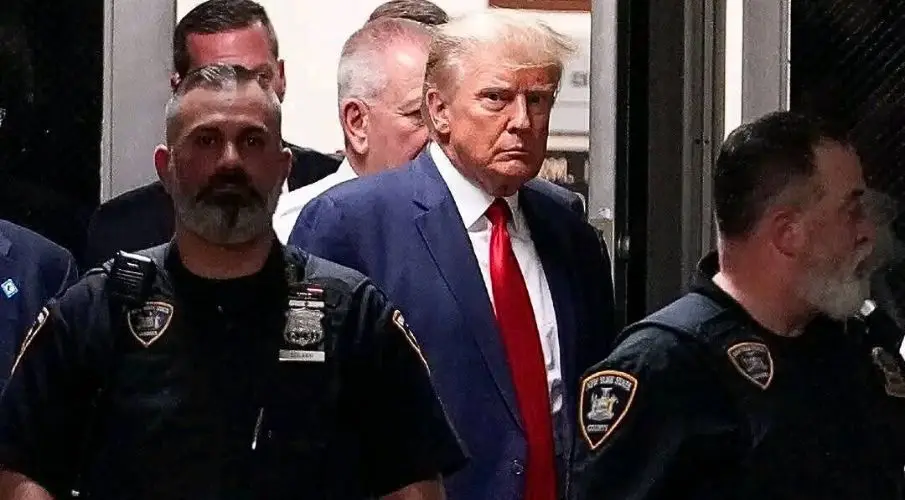Washington - Behind the walls of the federal courts, a silent yet momentous struggle is taking shape - one that reaches deeper than any single trial. It concerns the very foundation of American separation of powers, the right to control authority, and a practice that is pushing the United States justice system to its limits. According to our research, the Eastern District of Virginia is dealing with multiple cases showing how the Trump administration systematically bypassed the Constitution’s Appointment Clause to keep loyal federal prosecutors in office - without Senate approval, without democratic oversight.
At the center is a pattern stretching from New Jersey to Nevada to California - and now culminating in Virginia, where the indictment against James Comey was filed. The parallels are striking. In every case, Attorney General Pam Bondi appointed close allies of the president as interim United States attorneys - with terms clearly limited by law. Yet when those terms expired, loopholes were created, tenures were extended, appointments rebranded.

The clearest example is Alina Habba, formerly Donald Trump’s personal attorney. She was appointed on March 28, 2025, as interim U.S. attorney for the District of New Jersey - without any prosecutorial experience. After the 120 days set by law expired, the district judges appointed a successor. But the Trump administration swiftly dismissed her and attempted to reinstate Habba under the Federal Vacancies Reform Act as “Acting U.S. Attorney” - a construct explicitly prohibited by law. A federal court in New Jersey declared this multi-step maneuver illegal on August 21, 2025. The ruling stated: “The executive is not permitted to handpick its prosecutors at will and extend terms that Congress has expressly limited.”

The same pattern emerged in the West: Sigal Chattah, also appointed by Bondi, resigned on the final day of her term - only to be reinstated the next day under a new title. This attempt to circumvent the statutory 120-day limit was likewise dismissed by the federal court in Nevada as “unlawful.” The judges wrote: “The law does not permit the executive to appoint whomever it wants, whenever it wants, to fill a U.S. attorney position.”

And finally, Bilal Essayli in California - known for his ties to conservative activists. Shortly before his term expired, he announced live on Glenn Beck’s radio show: “We’ve got a few tricks up our sleeves.” The next day he resigned, only to be immediately reappointed as “Acting U.S. Attorney.” This case too has led to constitutional challenges that could jeopardize multiple prosecutions.

These three precedents now form the legal foundation of the biggest conflict: the indictment of former FBI Director James Comey. Because here, too, the indictment was signed by a prosecutor whose appointment followed the same pattern - according to our research, Lindsey Halligan’s term under § 546 had already expired when she signed the document. The defense likewise argues that Halligan was not lawfully in office, rendering the entire indictment unconstitutional.


The defense relies on the very rulings already issued in New Jersey, Nevada, and California. The argument is sharp: the Trump administration, through a series of “artificially staggered appointments,” sought to bypass the separation of powers and neutralize the Senate’s role as a check on executive authority. The underlying dispute revolves around the so-called Appointments Clause (Article II, § 2, Clause 2 of the U.S. Constitution). It obliges the president to appoint senior officials - including federal prosecutors - with the advice and consent of the Senate. Only in narrowly defined exceptional cases may the attorney general make a temporary appointment, and even then only for 120 days. That limit was deliberately introduced in 2007 after the Bush administration had already tried to fill posts permanently with political loyalists.

But Trump went further. His attorney general, Bondi, exploited legal gaps to turn interim posts into permanent positions. This allowed the administration to fill key positions in the justice system with loyal attorneys without ever facing the Senate - a direct attack on constitutional balance. Former federal judges and prosecutors who intervened in court as amici curiae called it a “dangerous precedent.” Their brief stated: “The executive may not, for an entire term, install its own prosecutors without Senate consent. Such a practice would hollow out the appointment clause and endanger judicial independence.”

The problem is more than legal - it is structural. When a government gains control over the appointment of its own investigators, the principle of checks and balances disappears. And that is precisely what is now at stake in the Comey case. If the court determines that Halligan was unlawfully in office, not only would the indictment against Comey be null and void - but also a dozen other cases led by the same illegally appointed prosecutors.
What has emerged here is not an accidental error but a deliberate political manipulation. The Trump administration, across months and districts, built a system in which loyalty outweighed law. The legal façade served only to preserve power. The coming weeks will show whether the American judiciary still has the strength to halt this practice - or whether it has become part of an apparatus that long ago learned how to bend the rules until they break.
Investigative journalism requires courage, conviction – and your support.
Please also strengthen our journalistic fight against right-wing populism and human rights violations. We do not want to finance ourselves through a paywall so that everyone can read our research – regardless of income or origin. Thank you very much!


😡
Für eure Recherchen und Berichte müsstet ihr einen Preis gewinnen.🌹 Ich hoffe so sehr, dass es diesen Machenschaften und Personen an den Kragen geht, aber so richtig..